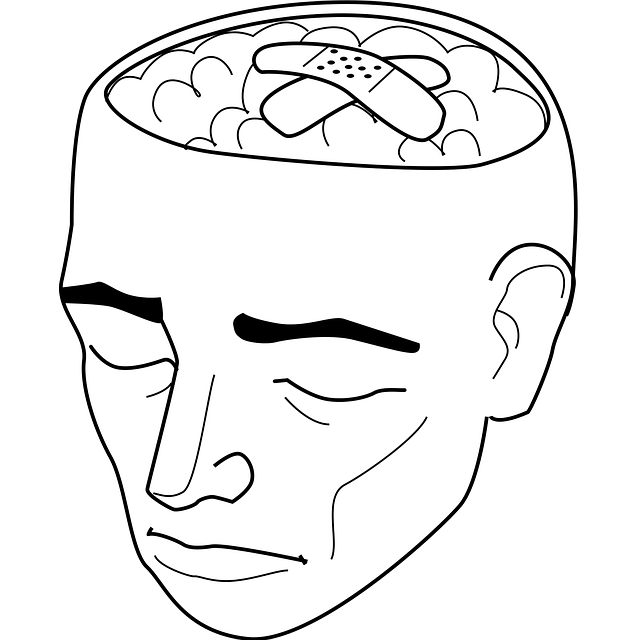Longmont Children Therapy prioritizes client safety through a comprehensive risk assessment process that considers psychological, social, and environmental factors. Regular policy reviews, thorough session assessments, and open communication ensure confidentiality, client well-being, and staff resilience. By integrating Self-Esteem Improvement strategies and conflict resolution techniques, they foster supportive environments that promote positive mental health outcomes for children. Continuous professional development, including specialized cultural competency training, ensures therapists employ evidence-based practices grounded in the latest research.
In the dynamic field of mental health, risk assessment is a cornerstone of safe practice. This comprehensive guide explores essential strategies for evaluating and mitigating risks within clinical settings, focusing on the unique context of Longmont Children’s Therapy. From understanding foundational concepts to implementing effective management techniques, we delve into identifying potential hazards and fostering an environment that prioritizes both client well-being and professional resilience. Continuous improvement through education and development ensures mental health professionals at Longmont remain adept at navigating complex risks.
- Understanding Risk Assessment in Mental Health
- Identifying Potential Hazards at Longmont Children's Therapy
- Strategies for Effective Risk Management
- Continuous Improvement and Professional Development
Understanding Risk Assessment in Mental Health

Risk assessment is a crucial process for mental health professionals to ensure the safety and well-being of their clients, especially when working with vulnerable populations such as children. At Longmont Children Therapy, understanding risk assessment is integral to providing effective care. It involves identifying potential hazards or risks within the therapeutic relationship and taking proactive measures to mitigate them. By thoroughly evaluating factors like past traumas, current stressors, and behavioral patterns, therapists can create a supportive environment that fosters mental wellness and builds resilience.
This process goes beyond simply identifying red flags; it encompasses a comprehensive look at the client’s psychological, social, and environmental factors. Through this, mental health professionals can develop tailored strategies to enhance positive thinking and promote healthy coping mechanisms. By integrating risk assessment into their practice, therapists at Longmont Children Therapy strive to create a safe space where clients can navigate challenges and cultivate lasting resilience.
Identifying Potential Hazards at Longmont Children's Therapy

At Longmont Children’s Therapy, identifying potential hazards is a meticulous process that forms the cornerstone of our risk assessment framework. We recognize that mental health professionals are constantly exposed to complex and sensitive situations, requiring a proactive approach to mitigate risks. Our team engages in regular reviews of existing policies like Mental Health Policy Analysis and Advocacy to ensure they align with best practices. This involves scrutinizing every aspect of our therapy sessions, from client interactions to physical environment, identifying vulnerabilities related to confidentiality, client safety, and staff well-being.
Risk Management Planning for Mental Health Professionals is not just a one-time exercise but an ongoing commitment at Longmont Children’s Therapy. We foster a culture where open communication encourages professionals to voice concerns about potential risks. By integrating Self-Esteem Improvement strategies into our risk assessment, we empower both clients and therapists to navigate challenging situations with resilience. Through these measures, Longmont Children’s Therapy strives to create a safe, supportive environment conducive to positive mental health outcomes for all.
Strategies for Effective Risk Management

Mental health professionals in Longmont Children Therapy face unique challenges that demand robust risk management strategies. One key approach is to implement comprehensive risk assessment tools that identify potential hazards early on. These tools should encompass not just individual client factors but also environmental and institutional risks, such as staff burnout or limited resources. Regularly updating and reviewing these assessments ensures that the most current information informs decision-making.
Moreover, integrating conflict resolution techniques and crisis intervention guidance into practice empowers therapists to navigate challenging situations effectively. Training in active listening, de-escalation strategies, and emotional regulation models equips professionals with the skills needed to foster safe and supportive therapeutic environments. By promoting open communication, understanding boundaries, and providing clear guidelines for managing crises, these techniques contribute significantly to depression prevention and overall risk mitigation within the field of mental health care.
Continuous Improvement and Professional Development

At Longmont Children Therapy, we understand that continuous improvement and professional development are paramount in maintaining the highest standards of mental health care. Regularly updating skills and knowledge is essential to navigate the evolving landscape of healthcare, especially when it comes to risk assessment for mental health professionals. This commitment ensures our therapists stay abreast of the latest evidence-based practices and research, enabling them to provide compassionate cultivation practices that are both effective and culturally competent.
A key aspect of this process involves specialized training for healthcare provider cultural competency. By equipping our professionals with the tools to understand and appreciate diverse cultural backgrounds, we enhance our ability to deliver tailored interventions. This approach not only strengthens patient outcomes but also fosters an inclusive environment where every individual feels seen, heard, and respected.
Mental health professionals, especially those working with vulnerable youth like those at Longmont Children’s Therapy, must be adept at risk assessment. By identifying potential hazards and implementing effective strategies for risk management, therapists can ensure a safer environment for both clients and themselves. Continuous improvement and professional development are key to staying current with best practices in risk assessment, ultimately enhancing the quality of care provided at facilities like Longmont Children’s Therapy.










